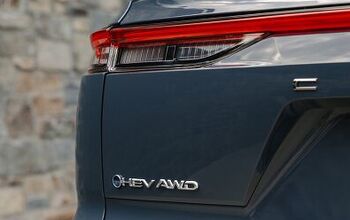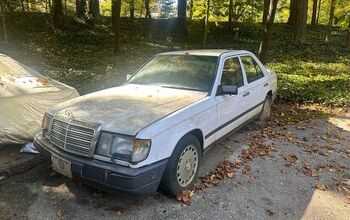Gas War: Inspector General to Investigate Fuel Rollback

Following requests from Senator Tom Carper (D-DE) for a formal investigation into whether the Safer Affordable Fuel-Efficient (SAFE) Vehicle Rules proposed by the Trump administration violates the Clean Air Act (or some currently undetermined regulatory requirement that might stop it from coming to fruition), the U.S. Environmental Protection Agency’s Office of Inspector General said it will indeed evaluate the emissions rollback.
As the ranking minority member of the Senate Environment and Public Works Committee, Carper’s opposition to the fuel rollback is to be expected. With politicians unwilling to find common ground and engage in good-faith discussions that might result in some amount of compromise in service to the people, opposition tactics have devolved into partisan lawsuits and trying to halt the new rules over technicalities.
Funnily enough, SAFE was already compromised once already to include more stringent regulatory measures designed to appease environmentalists. That move didn’t prove very successful, highlighting the fractured nature of modern politics.
Leadership in some states continue to demand retention of the Obama-era rules (despite that administration’s own EPA saying they would be unmanageable). More than a few have gone so far as to suggest they’ll abide by stricter Californian regulations, regardless of what happens with the rollback — the political equivalent of covering your ears and saying “I can’t year you, la la la la.”
But the Trump administration isn’t going into this without a few blemishes of its own. Some have refuted claims that the rollback would encourage cheaper automobiles by discouraging the industry from pushing electric vehicles, citing the administration’s own cost-of-ownership analysis and taking a broader scope of view. Still, that presumes heaps of people default into buying EVs — which probably won’t happen until the cars become cheaper to buy, as well as superior (or at least equal) to gas-powered autos in all respects. We already harped on this when assessing Joe Biden’s surprise endorsement of Cash for Clunkers 2.o.
Then there’s the EPA, which has been blasted in the media after staffers claimed the science behind some of the rollback decisions were junk. This outlet certainly found some of the rationale behind the current administration’s claim that staying with the higher efficiency standard would result in less-safe automobiles to be mildly suspect. But any valid concerns have been undermined by political infighting within the organization itself and news outlets writing articles calling the fossil fuel industry mass murderers. Like nearly every issue raised since 2016, the rollback has been politicized to a point where it’s nearing self-parody.
Meanwhile, nobody seems capable of determining how much trash was actually shoveled around in service of those politics at the EPA. Assuming the Inspector General can set any biases aside to determine what aspects of the proposal are legitimate and clear up any concerns about bunk data, we’re eager to see the watchdog enter into the fray.
[Image: Marc Bruxelle/Shutterstock]

A staunch consumer advocate tracking industry trends and regulation. Before joining TTAC, Matt spent a decade working for marketing and research firms based in NYC. Clients included several of the world’s largest automakers, global tire brands, and aftermarket part suppliers. Dissatisfied with the corporate world and resentful of having to wear suits everyday, he pivoted to writing about cars. Since then, that man has become an ardent supporter of the right-to-repair movement, been interviewed on the auto industry by national radio broadcasts, driven more rental cars than anyone ever should, participated in amateur rallying events, and received the requisite minimum training as sanctioned by the SCCA. Handy with a wrench, Matt grew up surrounded by Detroit auto workers and managed to get a pizza delivery job before he was legally eligible. He later found himself driving box trucks through Manhattan, guaranteeing future sympathy for actual truckers. He continues to conduct research pertaining to the automotive sector as an independent contractor and has since moved back to his native Michigan, closer to where the cars are born. A contrarian, Matt claims to prefer understeer — stating that front and all-wheel drive vehicles cater best to his driving style.
More by Matt Posky
Latest Car Reviews
Read moreLatest Product Reviews
Read moreRecent Comments
- Redapple2 Love the wheels
- Redapple2 Good luck to them. They used to make great cars. 510. 240Z, Sentra SE-R. Maxima. Frontier.
- Joe65688619 Under Ghosn they went through the same short-term bottom-line thinking that GM did in the 80s/90s, and they have not recovered say, to their heyday in the 50s and 60s in terms of market share and innovation. Poor design decisions (a CVT in their front-wheel drive "4-Door Sports Car", model overlap in a poorly performing segment (they never needed the Altima AND the Maxima...what they needed was one vehicle with different drivetrain, including hybrid, to compete with the Accord/Camry, and decontenting their vehicles: My 2012 QX56 (I know, not a Nissan, but the same holds for the Armada) had power rear windows in the cargo area that could vent, a glass hatch on the back door that could be opened separate from the whole liftgate (in such a tall vehicle, kinda essential if you have it in a garage and want to load the trunk without having to open the garage door to make room for the lift gate), a nice driver's side folding armrest, and a few other quality-of-life details absent from my 2018 QX80. In a competitive market this attention to detai is can be the differentiator that sell cars. Now they are caught in the middle of the market, competing more with Hyundai and Kia and selling discounted vehicles near the same price points, but losing money on them. They invested also invested a lot in niche platforms. The Leaf was one of the first full EVs, but never really evolved. They misjudged the market - luxury EVs are selling, small budget models not so much. Variable compression engines offering little in terms of real-world power or tech, let a lot of complexity that is leading to higher failure rates. Aside from the Z and GT-R (low volume models), not much forced induction (whether your a fan or not, look at what Honda did with the CR-V and Acura RDX - same chassis, slap a turbo on it, make it nicer inside, and now you can sell it as a semi-premium brand with higher markup). That said, I do believe they retain the technical and engineering capability to do far better. About time management realized they need to make smarter investments and understand their markets better.
- Kwik_Shift_Pro4X Off-road fluff on vehicles that should not be off road needs to die.
- Kwik_Shift_Pro4X Saw this posted on social media; “Just bought a 2023 Tundra with the 14" screen. Let my son borrow it for the afternoon, he connected his phone to listen to his iTunes.The next day my insurance company raised my rates and added my son to my policy. The email said that a private company showed that my son drove the vehicle. He already had his own vehicle that he was insuring.My insurance company demanded he give all his insurance info and some private info for proof. He declined for privacy reasons and my insurance cancelled my policy.These new vehicles with their tech are on condition that we give up our privacy to enter their world. It's not worth it people.”

































Comments
Join the conversation
What rollback? Not moving forward is not the same as rolling back.
ROFL, ToolGuy!